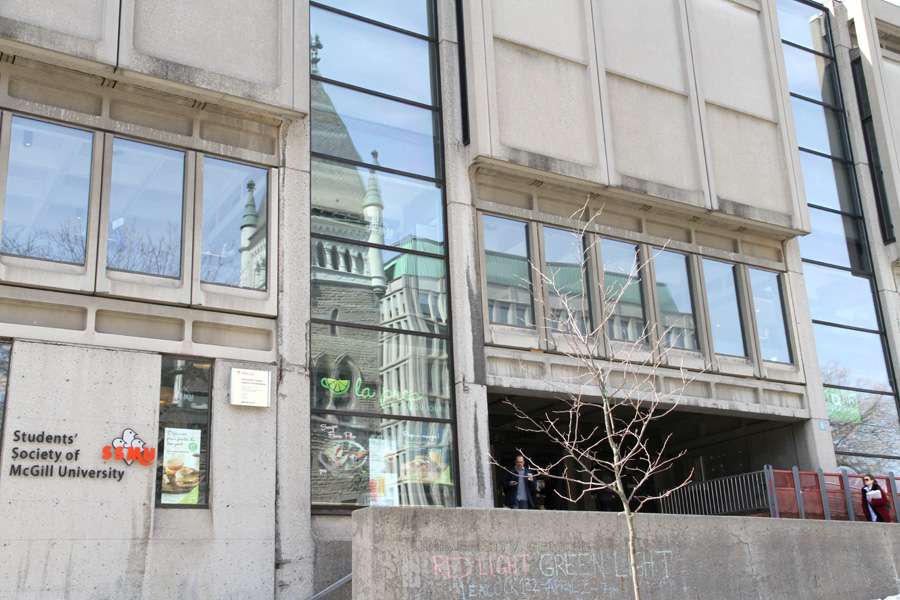Elections SSMU’s controversial decision to invalidate Tariq Khan’s presidential win has been upheld by the Judicial Board (J-Board) of the Students’ Society of McGill University (SSMU) following a hearing on April 29.
The J-Board’s unanimous ruling, which was ratified by the Board of Directors on April 30, confirms Elections SSMU’s decision to appoint runner-up Courtney Ayukawa as the SSMU president-elect.
Khan was elected SSMU president on March 21, winning the position by 78 votes over Ayukawa. On Apr. 1, Elections SSMU announced the invalidation of the result, following an investigation into multiple allegations of misconduct by Khan and members of his campaign during campaign period. Alleged bylaw infractions included unsolicited messages regarding the elections, external influence on Khan’s campaign, the obstruction of free voting, and financial inconsistencies within his budget report, as investigated by Elections SSMU through evidence such as witness testimonials, video footage, and message screenshots.
Khan’s petition to the J-Board was an appeal of the April 1 ruling. His legal advocate argued that Elections SSMU had not properly exercised discretion regarding the admission and publication of the evidence of the investigation, and that Elections SSMU had used biased evidence for its ruling.
“There were a lot of biases and inconsistencies in the testimonies, and the assessment by the Chief Electoral Officer (CEO) was biased towards those who made the allegations,” said Kiran Ross, Khan’s advocate. “For these reasons, the invalidation should be immediately overturned.”
Elections SSMU’s advocate, Catherine Hamill, stated that they had conducted their investigation with due diligence and had considered the possible biases of all pieces of evidence. Hamill stressed that Elections SSMU had ensured evidence possibly marked by bias had been corroborated by other evidence before taken into account.
“Elections SSMU is aware of the impact this invalidation has on Tariq Khan and McGill,” she said. “Considering the totality of all evidence that was used to invalidate [the election], the decision is reasonable.”
Khan’s advocate also argued that although she and Khan received the evidence prior to the hearing, some of the sources had been redacted by Elections SSMU, which obstructed Khan’s attempts to conduct investigations into the legitimacy of the testimonials. The J-Board, however, received and reviewed the unredacted evidence.
According to Chief Justice Bennet Misskey, the ability to redact certain pieces of evidence is necessary to protect sources who wish to remain anonymous.
“The CEO relies on the use of informants in the process of gathering and evaluating evidence of bylaw infractions,” he said. “Oftentimes, these informants will only come forward if they can be assured that their identity will be protected. The evidence that was redacted in the case of the Khan hearing […] was evidence that would put the informants’ identity at risk.”
In his explanation of the J-Board’s decision to uphold Elections SSMU’s invalidation of the election, Chief Justice Misskey highlighted the quasi-judicial mandate of the J-Board.
“The Judicial Board interprets the legality of the [decisions made by the] SSMU body,” he said. “Upon an independent review of all the evidence, the Judicial Board found that the CEO’s decisions regarding his findings of fact and the sanctions imposed for bylaw infractions fell within a range of reasonable alternatives that were open for him to make and were therefore within the scope of his discretion.”
According to the CEO, Ben Fung, this case has highlighted the importance of complying with SSMU’s bylaws, but has also raised issues regarding their clarity.
“I think this entire process showed that in general there are a lot of things that need to be fixed in the electoral process,” he said. “We’ll be looking to more clearly define the way Elections SSMU oversees elections in general and how we perform our investigative duties.”
Khan also emphasized the need to clarify the bylaws.
“Even though both parties do agree that there are a lot of ambiguities in the constitution and the bylaws, and [that] a lot of work that needs to be done,” he said. “It is sad that I am the one who’s paying the price for all those discrepancies.”
Fung said that after this case, there will be reform to the Elections SSMU voting system through a modification of the bylaws, including shortening of the voting period and a change towards the preferential ballot.
“In the case of an invalidation, there wouldn’t be a need for a re-election [with a preferential ballot] because votes can just be transferred,” he said. “It’s more of a fair and representative way of voting.”










Courtney the first ever ssmu president to not to be selected on McGill’s board of governors , says it all.
hey, I am not quite familiar with the board of governors. can you please clarify, thanks
Pingback: Quebec Superior Court rules against Tariq Khan’s interim injunction to be reinstated as SSMU President | McGill Tribune